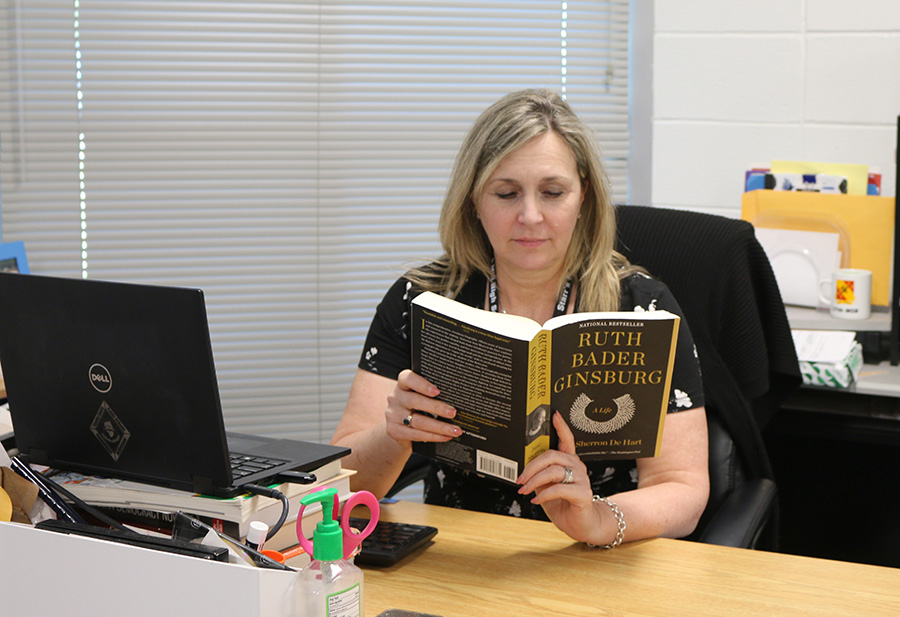Panther Reads
“Simple Justice”
U.S. history and AP government teacher Diane Ruane read “Simple Justice” by Richard Kluger as part of an American law class in college. “Simple Justice” takes a look at Brown v. Board of Education’s decision to desegregate schools and the events and people played a part in their decision.
April 24, 2021
As part of an American law class, U.S. history and AP government teacher Diane Ruane read “Simple Justice” by Richard Kluger in college.
“I liked that book and I think it really ignited a passion for the law and government and politics and the intertwining of that,” Ruane said. “It was just the springboard for me to get really activated into learning more about the law and the interpretation of the law.”
Published in 1975, “Simple Justice” delves into the law side of the civil rights movement, more specifically Brown v. Board of Education which outlawed racial segregation in schools around the country.
“Simple Justice” highlights the different court cases that eventually led up to Brown v. Board of Education, how the NAACP impacted and influenced the decision for desegregation in public schools, as well as exploring the effects of the 14th amendment, creating a foundation for the book.
“It’s the history of Brown v. Board of Education and Black America’s struggle for equality,” Ruane said. “It’s all going to center around the 14th amendment equal protection clause because that’s the heart of the case.”
Richard Kluger is an American author and book publisher who has won two Pulitzer prizes for his work, one for a book titled “Ashes to Ashes,” another for “Simple Justice.” As well as writing journalism, Kluger mainly focuses on topics such as society, politics, and history.
“There’s a lot of different cases that go before the court before they even get [to Brown v. Board of Education],” Ruane said. “It was just really interesting to watch that go through the process and then eventually get to the historic decision of Brown v. Board of Education.”
Exploring the law side of the civil rights movement, “Simple Justice” brings light to the foundations surrounding Brown v. Board of Education and its decision to desegregate schools in the United States. It highlights the effects of the NAACP, surrounding court cases, and the 14th amendment, all of which played a major part in the desegregation of public schools.





